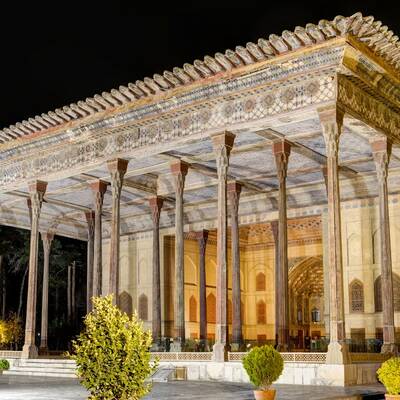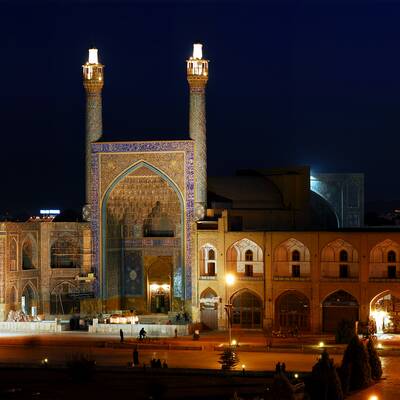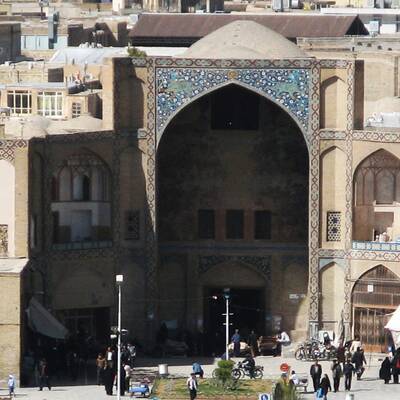
Meidan Emam, Isfahan
Historical square of Naqsh-e Jahan, currently known as Meidan Emam is one of the largest, most beautiful and magnificent squares in the world established in a garden named Naqsh-e Jahan (related to Seljuk era) in a rectangle-shaped place commissioned by Shah Abbas I . This square is the second large square in Isfahani architectural style.
Four remarkable architectural monuments placed here: Emam historical mosque in the south, Sheikh lotf Allah mosque in the east, Āli Qāpu palace in the west and Qeysarie gate in the north of the square all architectural masterpieces which were built at the same time.
The square has had different functions over time: establishing a Royal Palace and holding ceremonies, military marches, ritual punishment of convicts etc. refers to the political implications; the existence of two important mosques on two sides, holding ceremonies and rituals as well as congregational prayers in the square in cases of the lack of space in Emam Mosque indicates the religious functions and the commercial functions are as well apparent in positioning the square at the heart of bazaar (establishing the local stores, crowding population to buy, etc.); finally we can refer to the recreational functions of Naghsh-e Jahan because it has become a center for firework, polo, Qapun Andazi, Shater Davani, celebrations and national holidays, theatre, puppetry, storytelling and acrobatics.
https://whc.unesco.org/en/list/115





-khoshfetrat-main.jpg)

.jpg)

